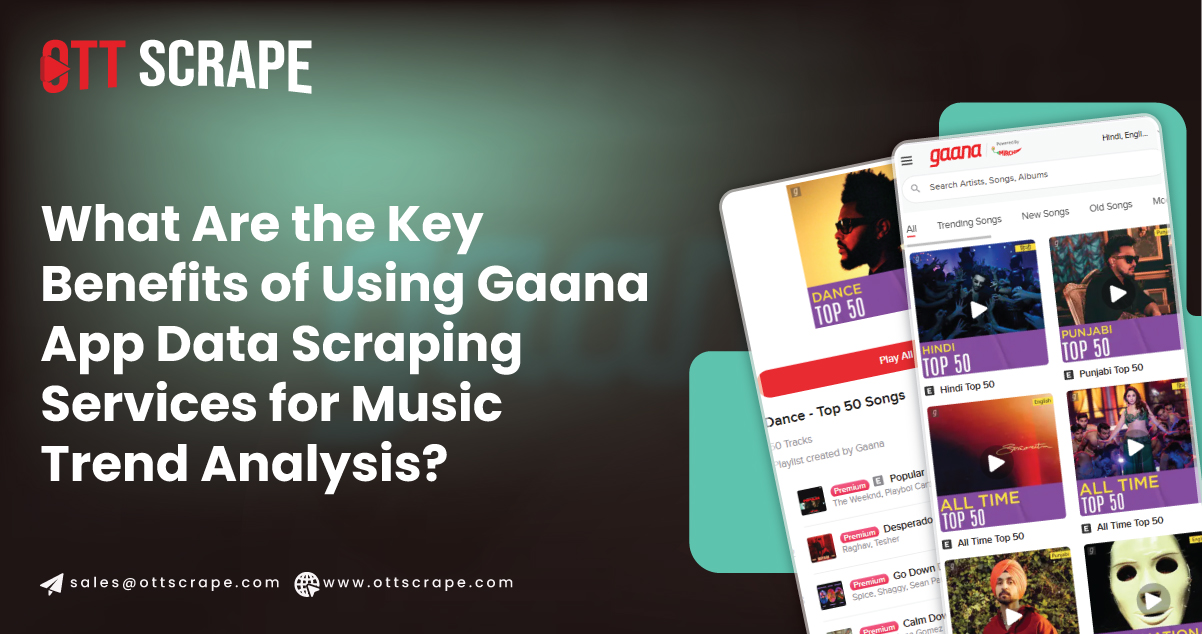
The digital revolution has drastically transformed how we consume music, with streaming platforms leading the charge. Among the numerous music streaming apps, Gaana has emerged as one of the most popular in India, boasting millions of active users and offering a vast library of songs across various languages and genres. For businesses, music enthusiasts, and marketers, analyzing data from Gaana can offer powerful insights into music trends, user preferences, and the overall landscape of the music streaming industry. Gaana App Data Scraping Services enable businesses to collect valuable data from Gaana's platform, allowing them to gain deeper insights into listening habits and the music preferences of its vast user base. Through Gaana App Data Scraping, companies can harness data to predict trends, refine content recommendations, and better understand audience behavior, providing a competitive edge in the music streaming market.
The Importance of Gaana in the Music Streaming Landscape
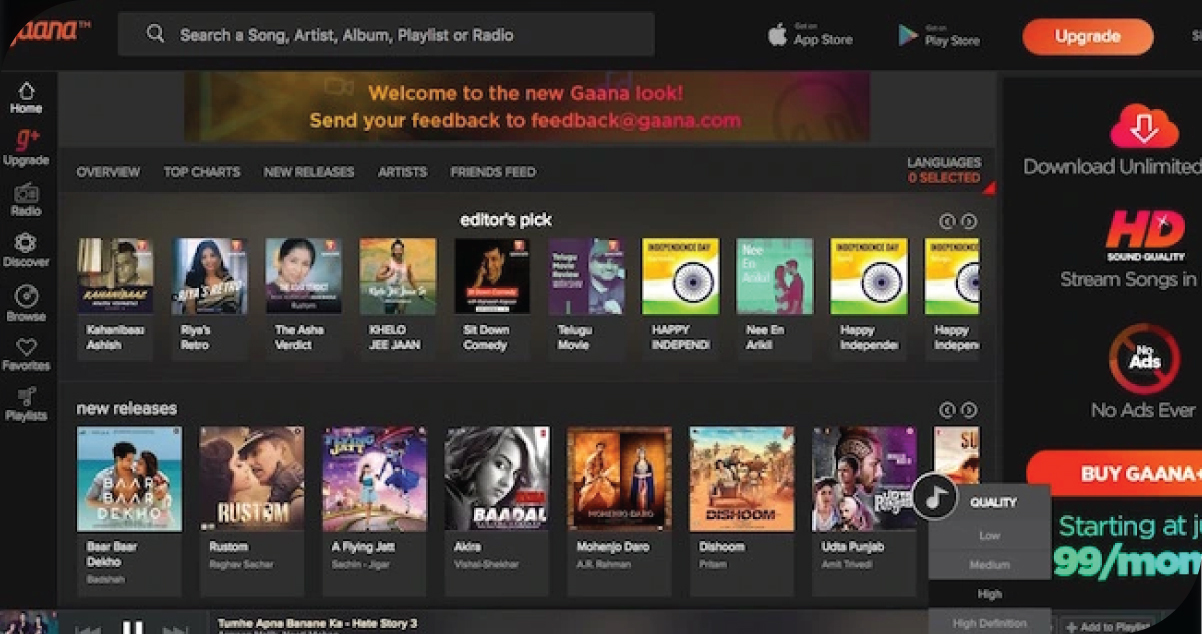
Gaana, launched in 2010, has become one of India's top music streaming platforms. It offers access to a massive library of over 45 million songs across various languages, including Hindi, English, Tamil, and Telugu. With a freemium model combining free and premium subscriptions, Gaana has attracted millions of users, particularly in India, where it is a go-to platform for music streaming.
The platform's user base consists of diverse demographics. The music genres range from Bollywood hits to regional songs, international tracks, and even niche genres like devotional music, jazz, and indie tracks. Gaana offers tailored playlists, personalized recommendations, and curated charts, all driven by user activity and interactions.
For marketers, data analysts, and even music producers, Gaana provides an excellent opportunity to study listener behavior. However, accessing this data can be challenging due to the platform's vast content and complex user interactions. This is where the Gaana App Data Scraper Comes into play. With the ability to Scrape Gaana App Data, businesses and analysts can gather insights into listener preferences, trends, and engagement, enabling them to make data-driven decisions and better understand their audience.
The Power of Data Scraping Gaana's Music Insights
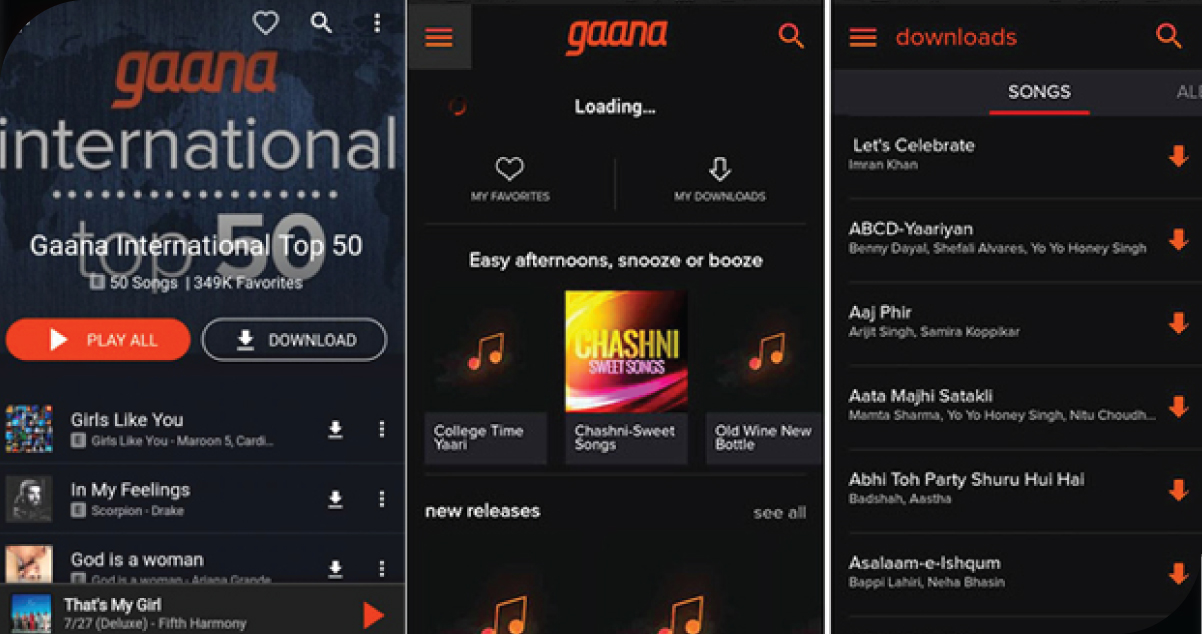
Data scraping refers to extracting large amounts of data from Gaana's website or app. This data can range from song popularity, user ratings, and listening patterns to detailed information about user behavior. Gaana App Data Extraction allows for the collection of structured and unstructured data that can be analyzed to uncover music trends, patterns, and preferences among listeners.
Here are some of the critical areas where Gaana app data scraping can provide valuable insights:
1. Identifying Popular Music Trends

One of the most potent aspects of scraping data from Gaana is the ability to identify emerging trends in the music industry. Analysts can spot trends in real-time by tracking song plays, rankings, and chart movements. These insights can help music producers, record labels, and marketers tailor their strategies to capitalize on popular genres and artists.
For instance, tracking the most played songs in a specific region or demographic can provide insights into the rise of new music genres or the resurgence of older genres. Music streaming platforms like Gaana reflect popular culture, and scraping data from Gaana allows for the identification of patterns that indicate shifting tastes.
This is especially important in a rapidly changing music industry, where trends can shift from one month to the next. Extract Gaana App Data to uncover these changes quickly, helping stakeholders stay ahead of the curve and adapt their strategies accordingly. With Gaana App Data Collection, businesses, and music producers can continually monitor listener preferences and fine-tune their approach based on real-time data.
2. Personalized Music Recommendations and Playlists

Gaana's algorithm suggests personalized playlists based on a listener's preferences, previous listens, and interactions with the app. Scraping this data allows businesses to understand the types of music users prefer, their listening habits, and how often they interact with specific playlists or recommendations.
This data provides crucial insights into user behavior for music streaming services, content curators, and app developers. It can be used to refine algorithms and create even more personalized user experiences. By analyzing the types of songs that are most frequently added to playlists, saved, or shared by users, developers can optimize the music recommendation system to enhance the user experience further.
Additionally, by web scraping the most popular playlists among specific user groups, businesses can better target advertisements, promotions, or music releases to the right audience. This personalization level can increase user engagement and improve retention rates for music streaming apps. Gaana App Data helps to reveal these valuable insights, empowering businesses to stay ahead of trends and enhance user satisfaction.
3. Understanding Demographic Preferences
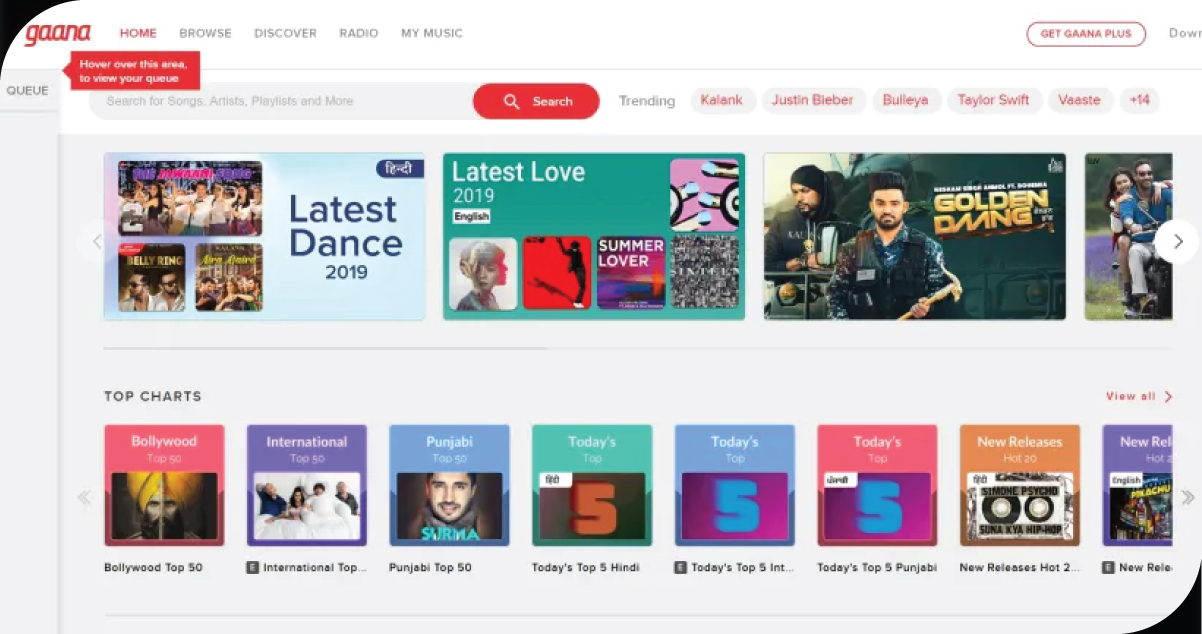
Gaana's large and diverse user base offers a wealth of demographic data that can be mined through scraping. By analyzing data points such as age, gender, geographic location, and device usage, businesses can gain valuable insights into how different demographic groups engage with music.
For example, a music producer or record label may want to know which genres are most popular among younger listeners in urban areas versus older listeners in rural locations. Data scraping can reveal these preferences, allowing companies to tailor their music offerings, marketing campaigns, and advertisements to specific target audiences.
This demographic insight is precious for brands and marketers launching region-specific campaigns or targeting niche markets. Understanding which genres resonate with which demographics enables them to create campaigns that speak directly to potential customers' interests.
4. Listener Behavior Analysis
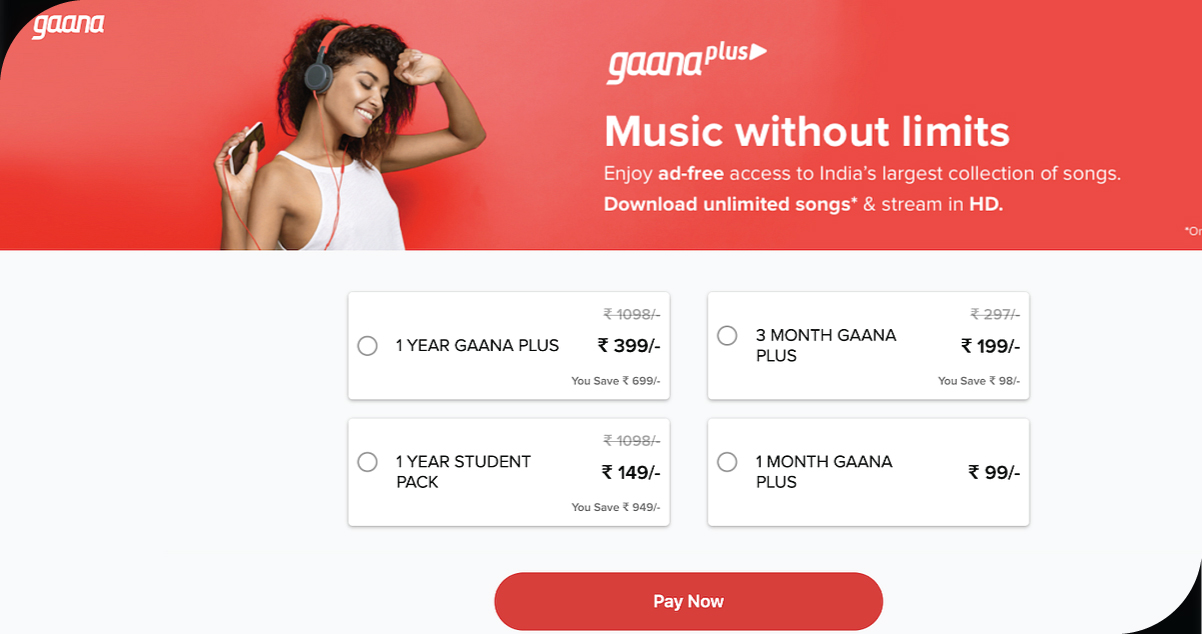
Data scraping allows for in-depth analysis of listener behavior, providing insights into how users engage with the platform. Information on session times, app usage frequency, listening habits, and song-skipping patterns can reveal much about how users interact with the platform.
For example, analyzing when and how often users listen to music and their preferences for specific genres during different times of day or seasons can help brands identify optimal times for launching new content, promotions, or advertisements. A user's tendency to skip certain songs can also offer valuable feedback for music producers and artists on improving their content to match listener preferences.
Listener behavior analysis also extends to user retention rates and how music streaming apps can improve engagement strategies. Understanding what keeps users returning and what causes them to disengage can help improve the app experience and the music selection on the platform.
5. Tracking Regional Preferences and Regional Music Trends
India's diverse cultural landscape is reflected in its music preferences, and Gaana's extensive library caters to multiple languages and regional tastes. Scraping Gaana's data can provide valuable insights into the most famous music in specific regions or cities.
For example, analyzing which songs are trending in particular states or urban centers can help regional artists, record labels, and music producers create region-specific content. Understanding the local music preferences allows for targeted promotions, custom playlists, and local collaborations.
This regional approach can help global streaming services better tailor their offerings to the Indian market with unique music consumption patterns. By scraping regional music data, stakeholders can learn about local music preferences, rising local artists, and the growing demand for regional language music.
6. Insights for Music Industry Growth and Development

Scraping data from Gaana can also offer valuable insights into the music industry's overall growth and development. Tracking the rise in subscriptions, the popularity of different music genres, and the behavior of paying subscribers can provide critical insights into what drives the growth of music streaming services in India.
For instance, a surge in premium subscriptions among specific demographics can signal the effectiveness of a targeted campaign or the increasing willingness of listeners to pay for ad-free music. By analyzing these patterns, music streaming services can enhance pricing models, design compelling offers, and improve customer loyalty.
Gaana's engagement data can also help record labels and independent artists understand where to focus their marketing efforts. They can identify which regions or demographics are ripe for new music releases, collaborations, or concerts.
Conclusion
Gaana API Data offers a treasure trove of insights that can help music businesses, marketers, and artists navigate the evolving music streaming landscape. From identifying popular music trends to understanding regional preferences and listener behavior, scraping Gaana's vast dataset enables businesses to make data-driven decisions that enhance user engagement and business performance.
With the continuous evolution of the music streaming industry, the ability to stay ahead of the curve is paramount. By analyzing Gaana's data, stakeholders can improve their offerings and contribute to shaping the future of music consumption in India and beyond. Whether it's predicting trends, refining user experiences, or understanding demographic preferences, Gaana app data scraping holds the key to unlocking the music industry's potential.
Embrace the potential of OTT Scrape to unlock these insights and stay ahead in the competitive world of streaming!
